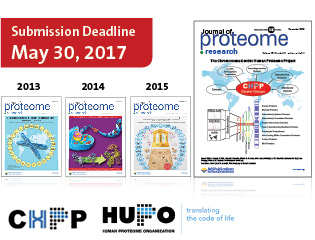I Thematic Priorities:
- Progress on completing the high resolution draft of the human proteome with new strategies and results leading to confident identifications of neXtProt missing proteins (PE2-4) according to the HPP Guidelines v 2.1
- Reports on the protein list of individual chromosomes and groups of chromosomes, annotating known proteins and their isoforms/proteoforms
- Generation of “popular proteins” lists supported by SRM analyses by B/D groups for specific organ systems, contributing to the identification of “missing proteins”
- Generation of post translational modifications (PTM) libraries for chromosome‐based protein sets and organ system-specific popular proteins
- Proteomic studies of proteoforms produced by proteolytic processing, PTMs, alternative splicing (ASV), coding non‐synonymous single nucleotide polymorphisms (cSNPs), chromosome abnormalities
- Biological mechanistic analyses inspired from proteomics data in diseases or biological processes
- Use of targeted proteomics, especially SRM and MS-SWATH, to extend chromosome-based or biology-based protein findings
- Disease studies utilizing chromosome information, characterizing amplicons, cis‐regulated pathways or networks
- Integration of genomic, transcriptomic, epigenomic, or metabolomic data with proteomics, using bioinformatics
- Combined analyses with MS, RNASeq and antibodies for targeted proteogenomic studies of tissue samples
- Biomarker discoveries based on the identification of novel ASVs, PTMs or cSNPs in proteomic studies.
I Submission Procedure:
Manuscripts must be submitted by May 30th, 2017 to be considered for this Special Issue. Manuscripts must be submitted electronically through the ACS Paragon Plus Environment online submission system. Specify in the authors’ cover letter that the manuscript is intended for the HPP Special Issue.
|

